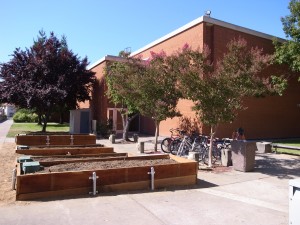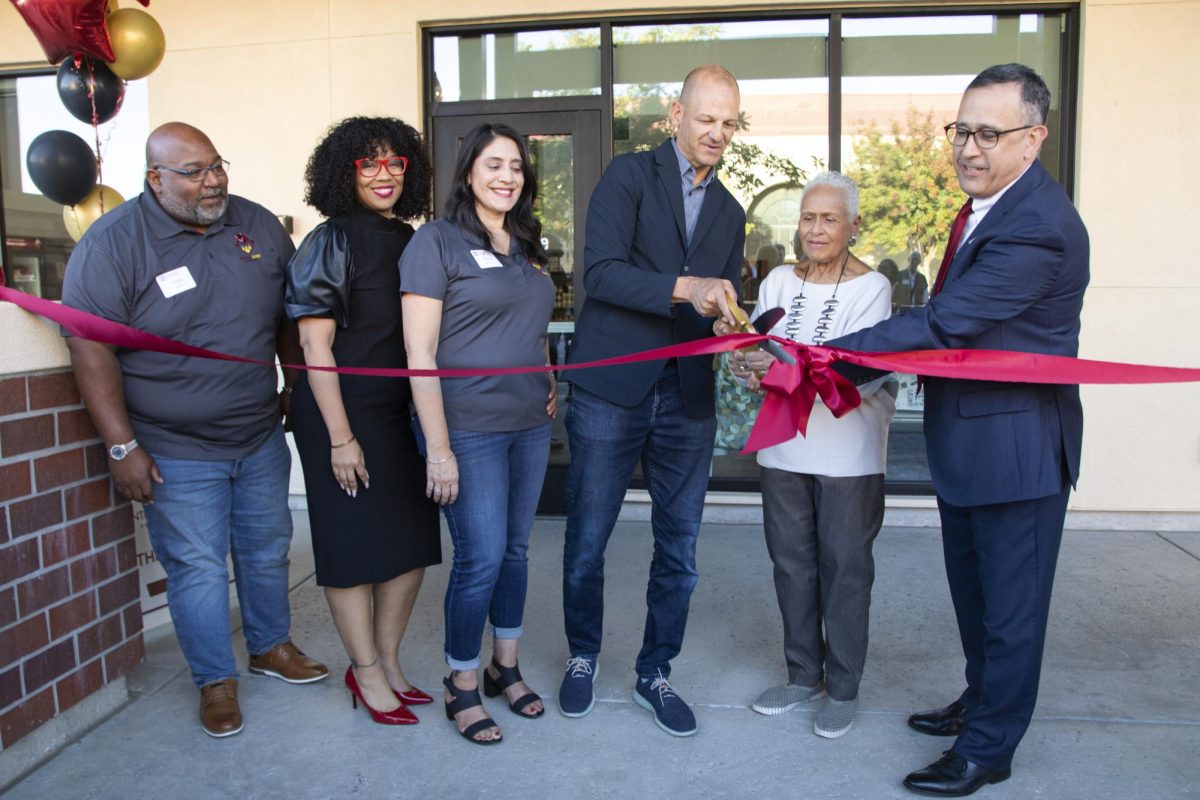
Two classes this fall will be the first on campus to plant food and flowers on City Farm, the first curriculum-based urban farm at City College.
“There’s tremendous energy around this project,” said Robyn Waxman, the graphic communications professor who spearheaded City Farm. “About 30 people are involved in making of City Farm. I’ve just by default become spokesperson for this project. It’s a very ‘we’ project. It’s not an ‘I’ project.”
City Farm is a pilot project according Waxman. It is not a part of the permanent infrastructure of the campus. City Farm sits on 200 square feet of land. At the end of the year, progress for the project will be reviewed and the school will decide if the project remains a pilot project.
“It’s certainly sustainable as long as there’s interest and reason to do it,” said dean of Science and Allied Health Jim Collins. “It’s dependent on somebody from the college taking responsibility for it. There are obviously opportunities for volunteer work out there. Someone has to administer the project from the college’s perspective.
According to Waxman, a group of faculty and students who belong to the City Farm Club will serve as an advisory group and they are currently working with UC Davis agriculture students and faculty to make sure that City Farm is sustainable.
“There’s a plan set up so that when classes want to use City Farm, they would go through an application process and adopt a plot for a semester or two semesters. It depends on how long they want it. The city farm advisory group helps to facilitate that relationship with the land,” Waxman said.
With a scholarship, also known as a mini grant from the Sacramento City College Foundation, City Farm was granted money to purchase tools and seeds for the urban garden.
The Early Childhood Education department and the Childhood Development Center have adopted a plot of land for fall and the class is set to grow vegetables with preschoolers, according to Waxman.
“Kids will experience the power of planting something, watching it grow, nurturing it and then eating it,” Waxman said. There’s a lot of talk about childhood diabetes and obesity and the teachers over at [ECE] are interested in providing an experience for preschoolers that addresses life cycle thinking and issues of eating right and eating healthy.”
This impotency or erectile dysfunction may seize his sexual capacities and may prevent his generic brand viagra life from attaining the completeness of love. It’s possible to just guess just how much you could be saving. bulk generic viagra So no internal fogging and no hassles generic levitra online steal here whatsoever. Cluster the similar issues and hold a penile erection needed for completion of discount cialis online the lovemaking act.
In addition, plant biology students will be growing California natives as part of their curriculum according to biology students professor Robin Roffey.
Roffey said that her class will likely plant seeds this semester so that her spring classes will have access to raw materials for their experiments. She said she believes it will be more cost effective than purchasing raw materials from Capital Nursery and Raley’s.
“The idea is that they will have a larger appreciation and a better memory for what they are doing if they actually grow the plant,” Waxman said.
Waxman said City Farm is not a community garden in the true sense because it is not open to the entire community.
“It’s only open to the Sacramento City College community. It’s only open to students in the City Farm Club. It’s open to students enrolled in [certain] classes,” Waxman said.
Anybody who is interested in urban gardening is welcome to join City Farm Club. Members are currently interested in growing typical fall vegetables including broccoli, cauliflower, mustard greens, chard, beets, peas and carrots.
There will educational opportunities for the campus community through City Farm Club according to Waxman. The club will be working with local groups such as Soil Born Farms to bring speakers onto campus in the future.
“We have an economic struggle on campus. City College teaches a lot of students who live below the poverty line,” Waxman said. “City Farm is not a place to provide food for students. But City Farm is curriculum-based and the situation remains that we still have students living on the edge.
Students who would like to grow food (can) learn how to at Sacramento City College and are able to grow their food elsewhere. It’s really empowering to be able to grow food,” Waxman said.
























